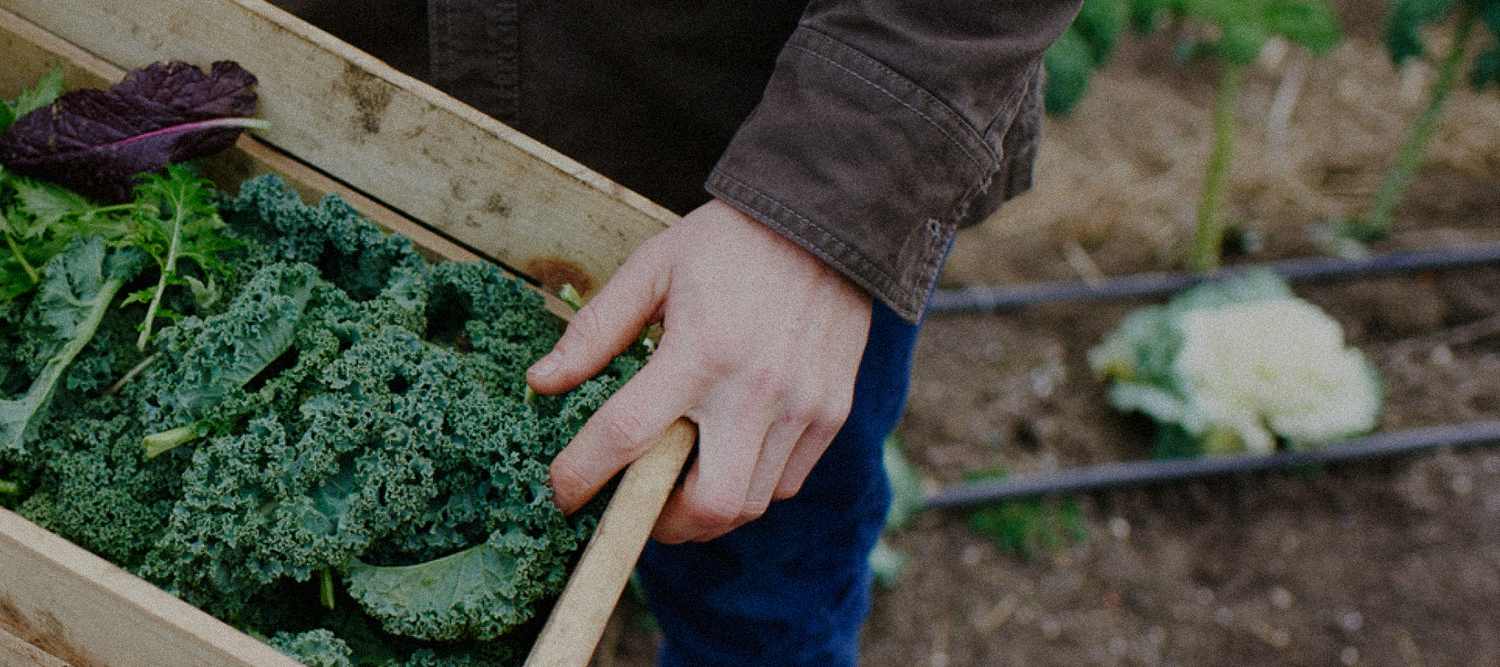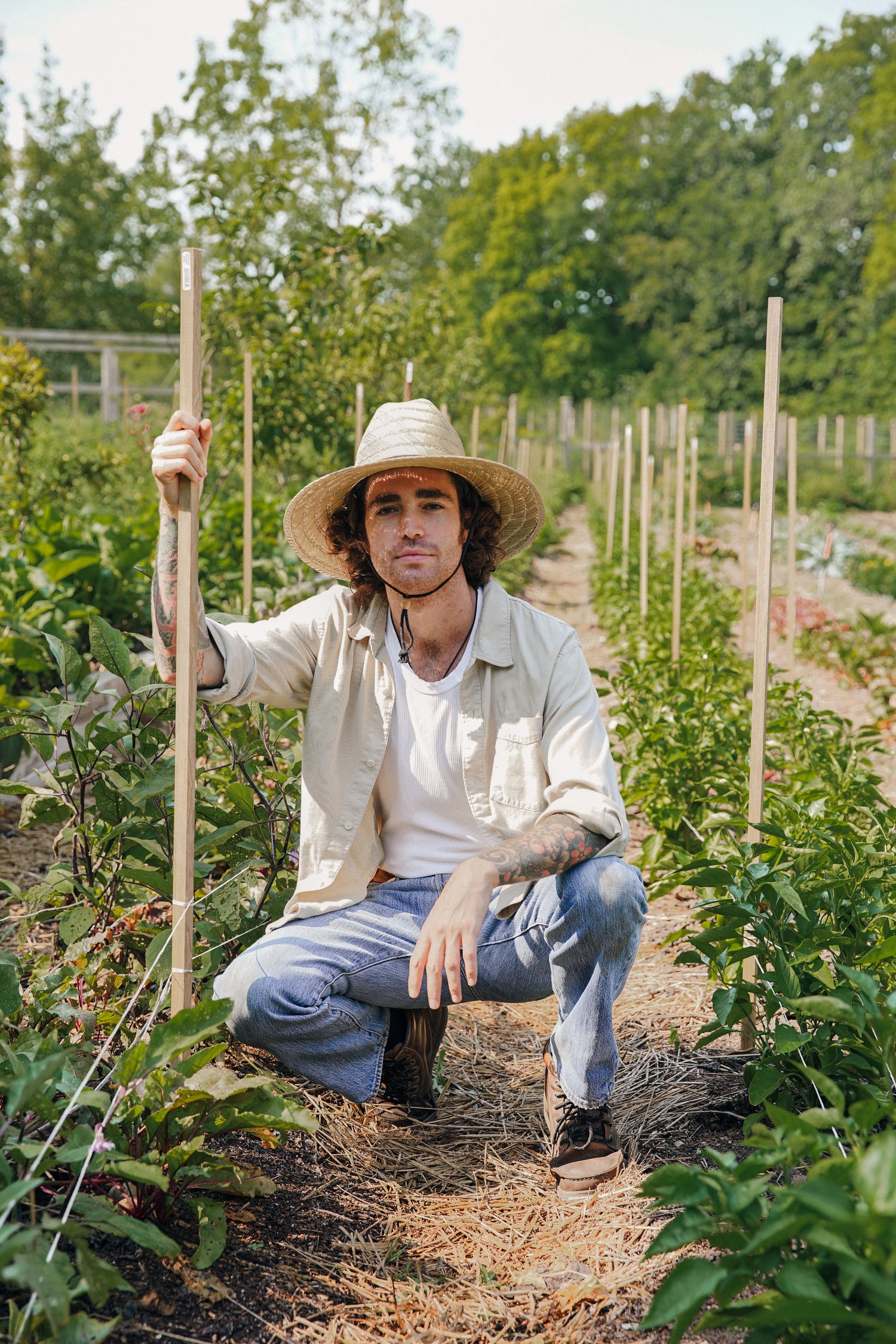
Farm School
Explore ways to learn below
Farm School at the Institute of Soil and Soul offers immersive, hands-on courses for adult learners interested in becoming farmers or deepening their understanding of food and farming systems. Our programs are designed to foster a supportive learning environment rooted in community, shared values, and practical skills.
This is our flagship course, taught by the founder of the Institute, and serves as an ideal entry point for beginning farmers, those with no prior experience, or current farmers looking to sharpen their systems thinking and on-the-ground skills. Participants join a cohort of like-minded individuals committed to cultivating regenerative agriculture and ecological awareness.
Course description
This seven-week hybrid course provides a comprehensive introduction to the principles and practices of regenerative agriculture, tailored for small to medium-scale farmers and homesteaders. We will explore the historical evolution of agriculture, delve into the foundations of healthy soil, examine holistic approaches to animal husbandry and orchard management, and learn integrated strategies for pest, weed, and disease management. Practical techniques in propagation, harvesting, and irrigation will be covered. This course uniquely integrates key ideas from psychoanalysis to foster a deeper understanding of the interconnectedness between human processes and natural systems. Through a combination of assigned readings and hands-on farm experience, students will gain the essential skills and knowledge to start their own farm enterprises and cultivate a deeper connection with the land.
Course Details
Schedule:Sundays, 9:00 AM – 2:00 PM
Coursework: Suggested weekly readings to be completed prior to class
Certification: Certificate of completion from the Institute of Soil and Soul
Tuition:Sliding scale, $720–$900
Class Size: Limited to 15 participants
Location: Farm Classroom, Long Grove, IL
Contact: gabriel@soilandsoulfarm.org
Course Modules
Week 1: What is Regenerative Agriculture?
Students will begin by exploring Joseph Campbell’s ideas on how myths shape culture, offering insight into the connection between human narratives and the development of agricultural systems. They will also examine the economic, environmental, and social consequences of regenerative agriculture, introducing and defining regenerative agriculture along with its origins, key approaches, and various schools of thought. This week will highlight the role of agriculture in shaping human history and its potential to address global challenges.
Week 2: Foundations of Healthy Soil
This week covers the impact of agriculture on soil health, including soil types, profiles, habitats, and fertility. Students will define the soil and its crucial functions, exploring the evolving definitions of soil health, the carbon cycle, and the soil community. The course will also discuss psychoanalytic understandings of human health and the parallels between soil and human well-being. Students will focus on how to restore soils and maintain long-term fertility through regenerative methods.
Week 3: Integrated Pest, Weed, and Disease Management
The psychological perspective on pests will be explored through James Hillman’s archetypal psychology, addressing how pests might symbolize ecological imbalances. Agriculturally, students will learn about the key principles of Integrated Pest Management (IPM), which includes cultural, biological, and classical control methods. This week will delve into the role pests play in ecological balance, the formation of symptoms (pest outbreaks), and the various strategies to manage pest populations in a regenerative system.
Week 4: Off-site field trip to partner farms
Week 5: Orchard Management and livestock integration
Students will learn about the environmental consequences of industrial livestock farming and the role of livestock in ecosystem health. This module will cover ethical and holistic animal husbandry, with a focus on integrated poultry management. Topics will include animal behavior, flock planning and management, henhouse design, and rotational grazing for poultry. Students will learn how to plan, manage, and maintain healthy, ethical livestock systems that contribute to farm sustainability.
Week 6: Growing Skills: Propagation, Harvesting, and Irrigation
In this module, students will learn about various planting and companion planting techniques, seeding strategies, and the biology of plant families. The course will cover propagation and harvesting techniques, along with the evolution and function of tool use in farming. Additionally, students will explore irrigation techniques, the small and large hydrologic cycles, and the impact of water use in different climate zones. The concept of keyline agriculture will be introduced as a way to optimize water flow and reduce irrigation-related challenges.
Week 7: Final design presentation
In our final week, students will present their own farm or homestead design, developed over the course of the program. Drawing on the concepts explored in regenerative soil health, integrated pest management, animal husbandry, water systems, and seasonal planning, each participant will share their vision for a resilient and relational farming system. This culminating exercise invites students to explain the interconnections between the elements in their design—highlighting ecological principles, practical strategies, and personal values. Peer feedback and group reflection will close out the course, honoring each participant’s unique contribution and cultivating a sense of community moving forward.
Testimonials
Course Format
The course follows a dynamic blend of weekly readings and engaging Sunday sessions held on the farm. Each week, participants will receive selected chapters from books, articles, and studies through a shared Google Drive folder. These readings, which take approximately two hours to complete, are to be reviewed before each class. Participants are encouraged to take notes and reflect on key ideas throughout the course in preparation for the final design presentation. Sunday sessions run from 9:00 AM to 2:00 PM and include a mix of interactive lectures, lunch, and hands-on learning experiences that bring the readings to life and foster a strong sense of community.
Course Goals
- Gain a solid understanding of regenerative agriculture's core principles and practices.
- Develop practical skills in soil health, animal care, orchard management, integrated pest management, and essential farm techniques.
- Explore the historical and ecological context of our food systems.
- Discover the fascinating parallels between human psychology and natural processes.
- Empower yourself to grow nourishing food and contribute to a healthier planet.

Instructor Biography
Gabriel Gould, MA
Gabriel Gould, MA is an experienced farmer, educator, and Executive Director at the Institute of Soil and Soul. His leadership in program development, community partnerships, and food production has been an unparalleled success for the organization, establishing it as a leader in Chicago Jewish life and local food production. Gabriel received a B.S. in Psychology at the University of Illinois in Urbana-Champaign, a M.A. in Depth Psychology at Pacifica Graduate Institute in Santa Barbara, and a Post-Graduate Diploma in Regenerative Food and Farming Enterprise from Schumacher College in Devon, England.
integration of psychoanalytic material
Throughout the course, we'll explore the fascinating parallels between natural systems and human psychology. We'll discuss how concepts like interconnectedness, cycles of growth and decay, and the unconscious influence our relationship with the land and our farming practices. Please note: This is not a substitute for professional treatment or medication but rather an exploration of how these principles can apply to both human and non-human systems.
Frequently asked questions
What does a typical course day schedule look like?
Here's a general outline of the day:
9:30 AM – Arrival
10:00–11:30 AM – Lecture
11:30–12:15 PM – Lunch
12:15–1:30 PM – Hands-on Activity
1:30–2:00 PM – Introduction to Next Week’s Material + Q&A
2:30 PM – Departure
Is lunch provided during the course?
No, lunch is not provided. All participants are required to bring their own lunch, as we are unable to accommodate various dietary needs in our kitchen.
What should I wear when coming to the farm?
Please dress for outdoor work and varied weather. Comfortable, weather-appropriate clothing, sun hat, and sturdy shoes are recommended.
What happens if I miss class?
If you miss a class, don’t worry — lectures will be recorded and shared with you. Additionally, we can arrange separate volunteer days for students in this course to make up the hands-on activities you missed.
What if I have no previous experience with farming or agriculture?
No prior experience is necessary! All experience levels are welcome. In fact, this course is ideal for beginners — you’ll be introduced to essential concepts, principles, and practices that will give you a strong foundation for continued learning.

